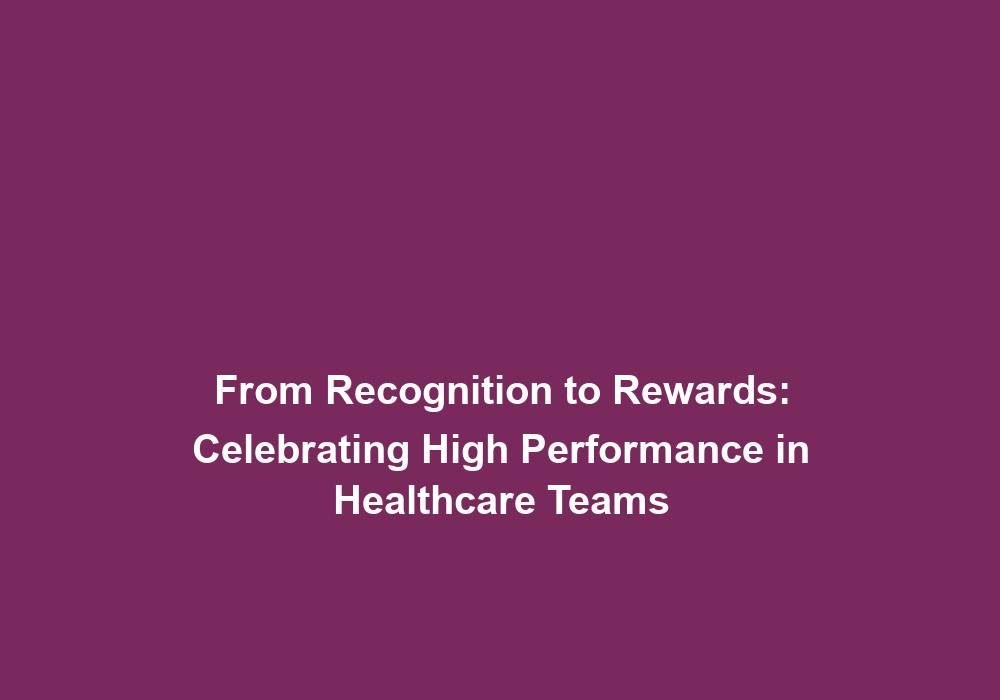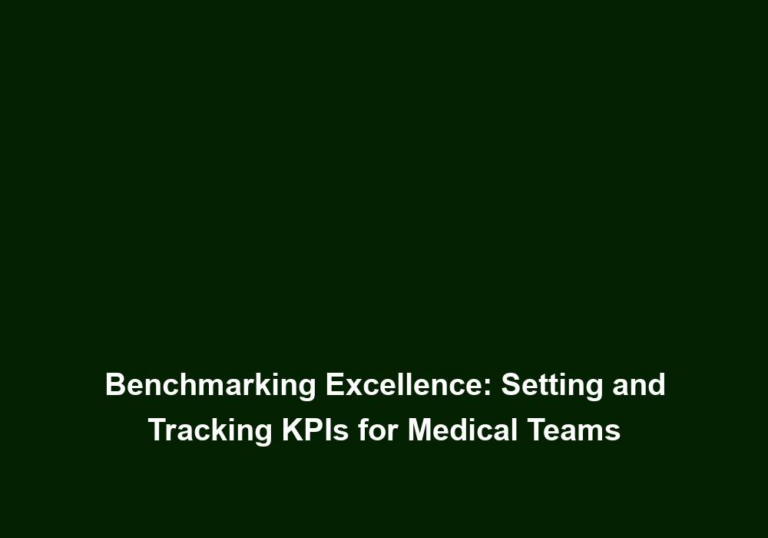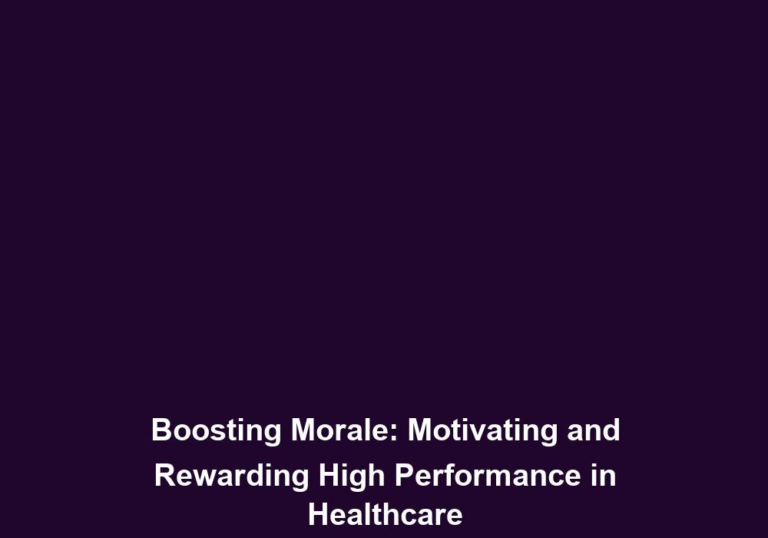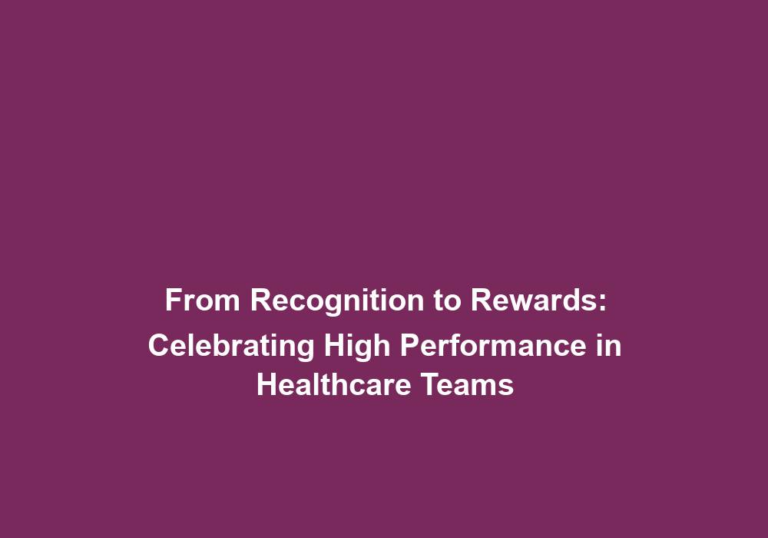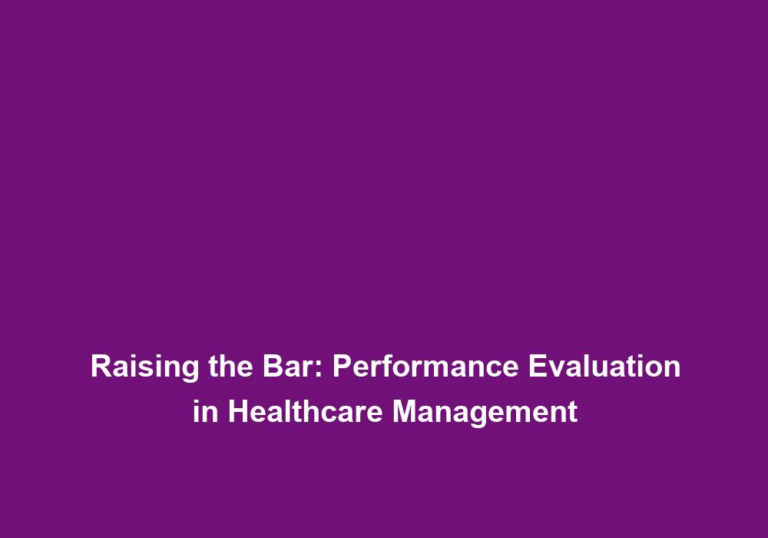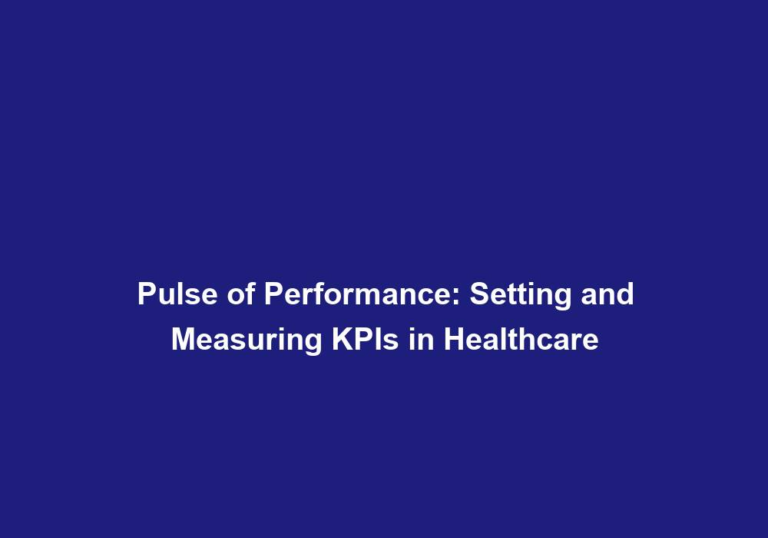From Recognition to Rewards: Celebrating High Performance in Healthcare Teams
In the rapidly evolving field of healthcare, high-performance teams play a critical role in providing quality patient care, improving outcomes, and promoting innovation. Recognizing and rewarding the efforts of these teams is essential for motivating and retaining talented professionals in the healthcare industry. This article explores the significance of celebrating high performance in healthcare teams and discusses effective strategies to foster a culture of recognition and rewards.
Why Recognition and Rewards Matter
-
Motivation and Job Satisfaction: Acknowledging the hard work and achievements of healthcare teams boosts their motivation and job satisfaction. When individuals feel valued and appreciated, it enhances their sense of purpose and encourages them to continue delivering exceptional care. This motivation translates into improved productivity and a higher level of patient satisfaction.
-
Retention of Top Talent: Celebrating high performance reinforces job loyalty and increases employee retention rates. Recognizing individuals and teams for their accomplishments not only makes them feel valued but also demonstrates a commitment to their professional growth and development. When employees feel appreciated, they are more likely to stay with the organization, reducing turnover and ensuring continuity of care for patients.
-
Enhanced Team Collaboration: Recognizing the achievements of healthcare teams strengthens collaboration and fosters a positive work environment. When individuals feel appreciated, they are more likely to collaborate effectively, share knowledge, and support each other, leading to improved patient outcomes. By creating a culture of recognition and rewards, healthcare organizations can promote a sense of camaraderie and teamwork among their employees.
-
Promotion of Continuous Improvement: Recognition and rewards can inspire healthcare teams to continuously strive for excellence. By celebrating their successes, organizations create a culture that encourages innovation, improves processes, and drives continuous improvement in patient care. When individuals are recognized for their achievements, they are motivated to seek out new ways to enhance their performance and deliver even better outcomes for their patients.
Strategies for Celebrating High Performance
-
Establishing a Recognition Program: Developing a formal recognition program is a crucial step towards celebrating high performance in healthcare teams. This program should provide clear guidelines on how to identify exceptional performance, who can nominate individuals or teams, and how recognition will be communicated and documented. By standardizing the process, organizations ensure fairness and transparency in the recognition of high-performing individuals and teams.
-
Creating a Culture of Appreciation: It is essential to foster a culture where appreciation is embedded in day-to-day operations. Encourage regular expressions of gratitude and appreciation among team members. Simple acts, such as thank-you notes, personalized messages, or public acknowledgments, can go a long way in making individuals feel valued. Additionally, providing opportunities for team members to share their appreciation for one another can strengthen relationships and boost morale.
-
Peer-to-Peer Recognition: Implementing a peer-to-peer recognition system allows team members to appreciate and celebrate each other’s achievements. This approach encourages a sense of camaraderie and builds stronger relationships within the team. Consider establishing a platform or forum where team members can publicly recognize their peers’ contributions. This not only promotes a positive work environment but also encourages teamwork and collaboration.
-
Customizing Rewards: Tailoring rewards to individual preferences and interests can make the recognition more meaningful. Some team members might appreciate financial incentives, while others may value professional development opportunities, additional time off, or public recognition ceremonies. Understanding what motivates each individual is crucial in designing effective rewards. By offering personalized rewards, organizations demonstrate their commitment to the well-being and growth of their employees.
-
Regular Performance Reviews: Incorporating recognition and rewards into regular performance reviews ensures that exceptional performance is not overlooked. By aligning recognition and rewards with performance evaluations, organizations can create a fair and transparent system that encourages continuous improvement and professional growth. This approach also provides an opportunity to provide constructive feedback and identify areas for further development.
-
Opportunities for Skill Development: Investing in the professional development of healthcare teams is an excellent way to recognize their high performance. Offering opportunities for advanced training, attending conferences, or pursuing certifications not only acknowledges their achievements but also enhances their skills and expertise. By investing in their growth, organizations demonstrate their commitment to the success of their employees and the provision of high-quality patient care.
-
Celebrating Milestones and Achievements: Recognizing significant milestones and achievements provides a sense of accomplishment and boosts team morale. Consider organizing celebratory events, such as award ceremonies, team-building activities, or social gatherings, to commemorate exceptional performance and foster a sense of community within the healthcare team. These events not only recognize individual and team achievements but also create opportunities for team members to bond and celebrate their shared successes.
Conclusion
Celebrating high performance in healthcare teams is a vital aspect of creating a positive work environment, fostering collaboration, and promoting continuous improvement. By implementing effective recognition and reward strategies, organizations can motivate their teams, retain top talent, and ultimately enhance patient care and outcomes. Investing in the recognition and appreciation of healthcare professionals is an investment in the future of healthcare.

